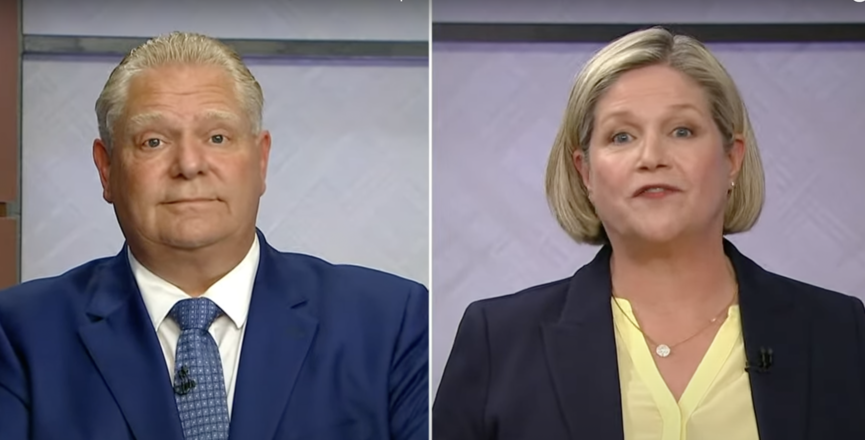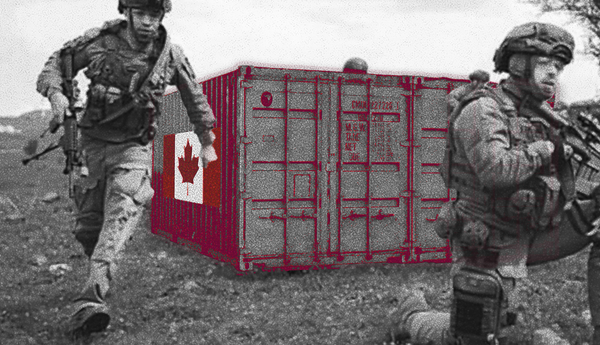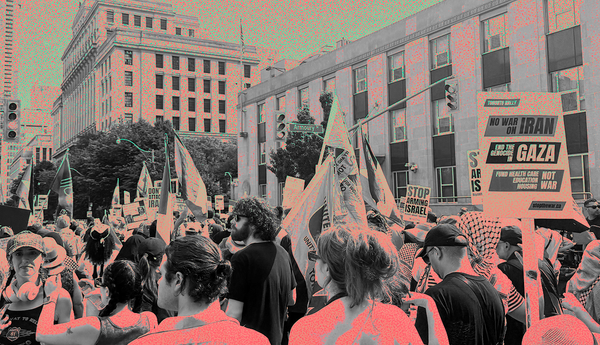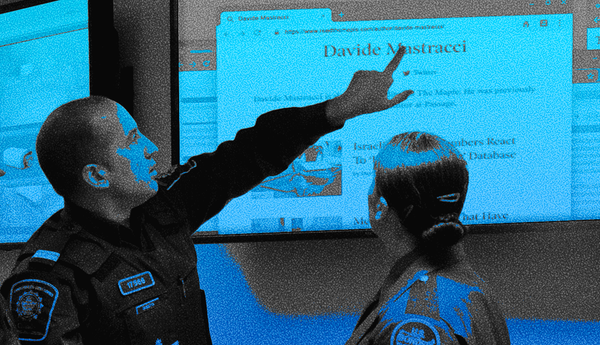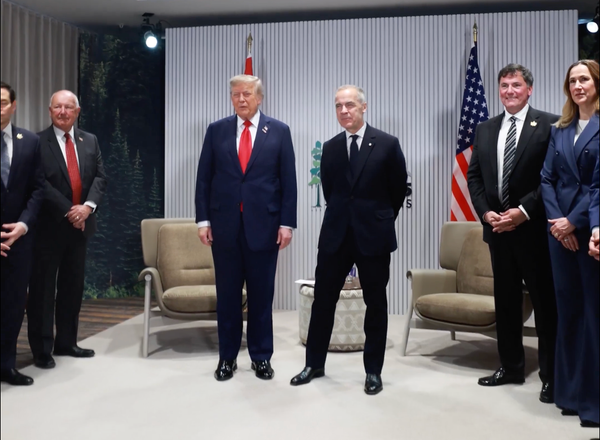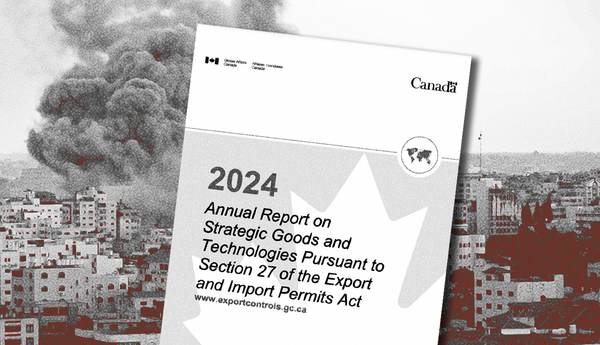On Monday, the final televised leaders’ debate gave Ontarians a last look at their candidates before they head to the polls on June 2.
Each of the leaders kicked off the debate with two-minute prepared speeches. As this is typically the most rehearsed part of the debate, it offered each candidate precious time to make an uninterrupted pitch to voters.
In his opening remarks, Progressive Conservative Leader Doug Ford focused on affordability and building more highways. He centred his remarks around saying “yes” — seven times in total — and “get it done,” his party’s election motto, both at the start and the end of these remarks. He stumbled when he went off script, but seemingly not because he was nervous.
Ford was relaxed and looked like he was enjoying himself – perhaps not surprising, since his party has maintained a consistent lead in the polls during the election campaign.
The ONDP’s Andrea Horwath went next, and introduced her remarks by saying “I’m sure this is not the most fun thing you will ever do on a Monday night.”
It took 20 of her 120 seconds to actually get to her arguments. Horwath was uneasy and her speech was halted — a surprising performance considering that she’s a political veteran with far more experience than any other candidate on the stage.
She rattled through general promises, including fixing long-term care, ensuring that “everybody has a decent job” and, like Ford, addressing affordability.
While her opening speech didn’t seem rehearsed, it was clear that her strategy throughout the debate was to refer equally to both previous PC and Liberal governments.
At the end of her opening remarks, Horwath motioned to her left and right at Liberal Leader Steven Del Duca and Ford while criticizing their parties’ records in government. With both rival leaders off screen, Horwath squandered her place in the spotlight, and reminded viewers that her government hasn’t been in power for decades.
Green Party Leader Mike Schreiner was next. He had the air of a nervous substitute teacher who, although awkward, is passionate about teaching.
Unlike Horwath, his opening remarks started with a left hook: “It is now or never to stop the climate crisis, and that is why we need to stop Mr. Ford from paving over our future.”
His nod to Ford’s highway-obsessed platform flowed into a clear and well-articulated list of the Green Party’s concerns, mostly related to affordability and climate-change readiness.
Finally, Del Duca spoke. He was well-rehearsed and calm, and was the only candidate who spoke directly to Ontarians who are feeling the stress of the last few years. He immediately addressed students “forced to learn through screens” followed by seniors who, he said, do not want to end up in for-profit care homes.
Veteran Ontario politics journalist Mike Crawley suggested that Schreiner was the winner of the debate. With the least to lose, the Green leader took direct jabs at Ford with what Crawley called “the sharpest blows.”
Schreiner’s hits against Ford were “both disarming and pointed,” Crawley said.
At the Ottawa Citizen, political watchers were divided on who won: Angus Reid’s Shachi Kurl said Ford won “by total default” because “the others just didn’t push him hard enough.”
Columnist Brigitte Pellerin handed the victory to Schreiner, writing that the Green leader was “the only one who had substantive things to say about health care.”
Former PC candidate Randall Denley said he thought that Del Duca and Ford both “came across well and accomplished what they needed to.”
Christina Spencer, the Citizen's editorial page editor, declared Horwath the night’s loser, but conceded that the ONDP leader had the difficult task of trying to go after both Del Duca and Ford. Spencer asked, “is she running against the current PC government, or the pre-2018 Liberal one?”
Ford was not easily knocked off of his game during the debate. Armed with a binder full of notes that he didn’t rely on too much, he came across as calm and capable.
Compare this to the 2018 leaders’ debate, where Ford’s opening speech was exasperated and nervous. He talked slowly in breathy, short sentences. This time around, he also memorized his speech, suggesting that he’s mastered at least some of the tools needed to make himself come across as more authentic.
The dynamics of the debate can be explained in part by the fact that Ford has the easiest path forward of all the candidates.
With more than 60 of 124 seats either firmly or likely going to the PCs, according to projections from the 338Canada polling aggregator in the days after the debate, he is well on his way to winning a second majority.
In two of these ridings, Brampton Centre and Oshawa, the PCs are well on track to yank seats away from the ONDP. The odds are also leaning in Ford’s favour in four other ONDP-held seats.
It’s easy for a politician to have a spring in their step under such solid footing.
The Liberals have nine seats where they are very likely or near certainly going to win, and two of those are also current ONDP seats: Thunder Bay—Atikokan and Toronto—St. Paul’s.
The ONDP have eight ridings where they are sure or very likely to win, and none of them would be gains from other parties. The Greens are only in play in one riding in the province, Schreiner’s, and it looks to be a safe victory for him.
But it’s in the ridings where the projected results are more hazy that we can see why Horwath’s performance was so dull.
She is fighting a war on all fronts, has the most to lose and hasn’t figured out a way to distinguish herself. The fact that the ONDP has a similar platform to the Liberals and Greens certainly doesn’t help.
In the 29 ridings that are considered “leaning” towards one party (but where victory isn’t a safe bet), just seven are leaning ONDP, and every one of those ridings would be a hold rather than a gain for the party.
This is in stark contrast to the Liberals, who are leaning towards victory in eight ridings, seven of which would be gains. Six would be gains from the ONDP.
It’s worth noting, however, that after being decimated in 2018, the previously governing Liberal Party was always likely to make at least some gains in this election.
Heading into this year’s vote, the ONDP needed to make a strategic decision: Do they go directly after Ford or do they go after both Ford and Del Duca? With the way things currently stand, they probably should have only focused on Ford, even if the Liberals are threatening to scoop up a few ONDP ridings.
Of the 14 ridings that are slightly leaning towards the PCs, four would be gains from the ONDP. That means, overall, eight of the ONDP-held ridings are threatened by the Liberals, and six are threatened by the PCs.
The remaining 27 ridings are projected by 338Canada as too close to call in the polls at the time of writing.
Four of these ridings are a toss-up between the PCs, Liberals and ONDP. Three are a toss-up between the PCs and the ONDP, and two are a toss-up between the Liberals and the ONDP. The remaining 18 seats are a toss-up between the Liberals and the PCs.
If the debate was nothing more than an expression of these numbers, it’s obvious why Horwath was so flat. But, she has one thing that Del Duca doesn’t have: A safe seat. 338Canada has the odds of Del Duca losing in his riding to the PCs at 72 per cent.
Note: The polling projections cited from 338Canada are current as of the time of writing, and may have changed slightly by the time of publication.
Nora Loreto is The Maple's Ontario election reporter. She is the author of Spin Doctors: How Media and Politicians Misdiagnosed the COVID-19 Pandemic.


